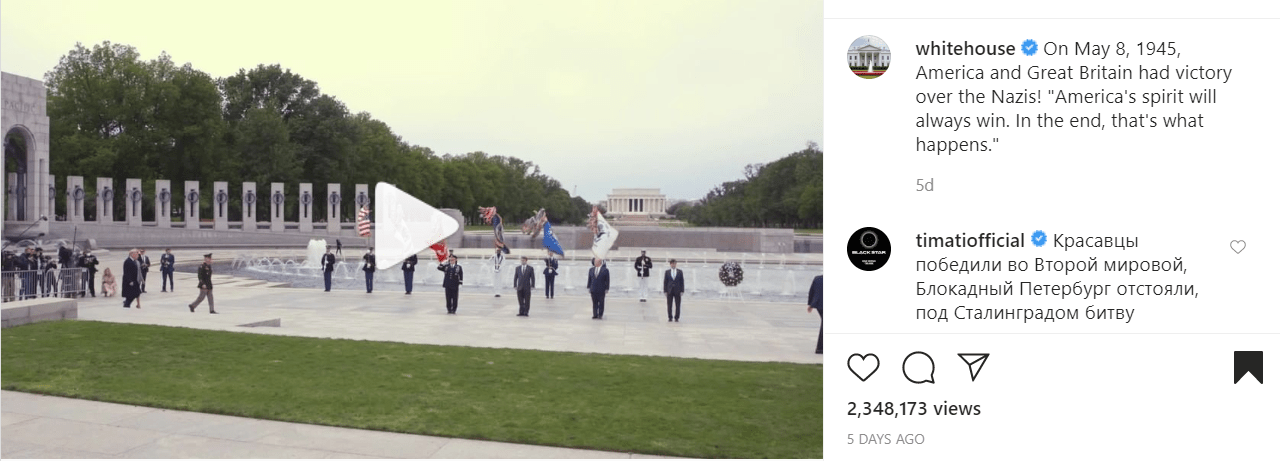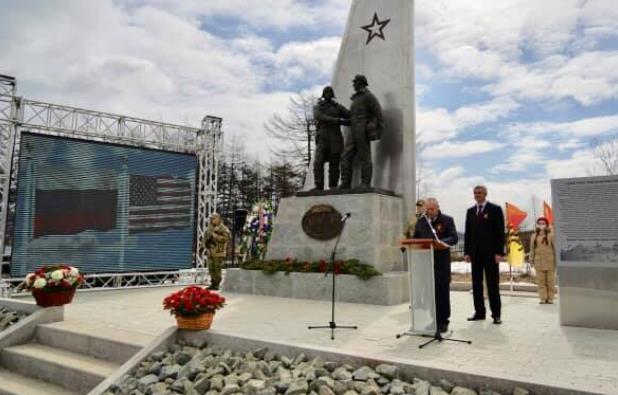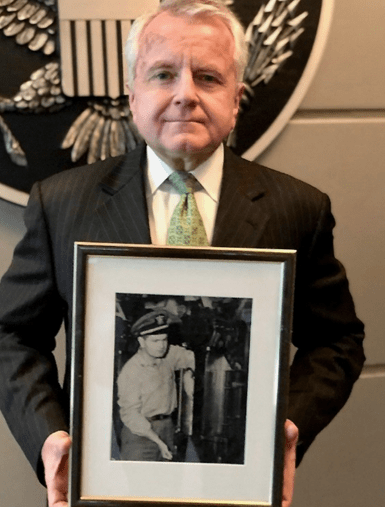(PONARS Eurasia Commentary) On May 8, at exactly 7:40 p.m., without a declaration of war, Russian comments inundated the social media pages of the White House. The presidential Instagram account had just posted a video clip of President Donald Trump’s visit to the World War II Memorial to mark Victory in Europe Day (V-E Day) alongside a caption that read: “On May 8, 1945, America and Great Britain had victory over the Nazis! ‘America’s spirit will always win. In the end, that’s what happens.’”

Screenshot from the U.S. White House Instagram page.
The post was sure to provoke Russian ire, and probably also among other World War II allies. The online responses to the White House post were immediate, categorical, and overwhelmingly Russian. The commenting streams were telling. They exemplify how, in the coronavirus era, historical war narratives have gone fully digital (similar to the latest dynamics surrounding Russia’s Immortal Regiment). Furthermore, they do not appear to be a coordinated troll attack and they fit quite nicely into President Vladimir Putin’s claims about historical falsification.
The most liked response to the White House post belonged to Timati, the pro-Kremlin Russian rapper known for having the most disliked video on YouTube in 2019. His comment had over 216,000 likes compared to 62,000 for the original White House post (as of May 24). His comment was: “[American] pretty boys won WWII, defended blockaded Petersburg, went through the Battle of Stalingrad and raised the flag over the Berlin. You guys are the best.”
If you scroll the comment section today, you may struggle to find a non-Russian comment. It looks like all of the posts there since May 8 have been bombarded by Russian V-E Day-related comments (here is a good example from May 24). A reader today may be quick to label the siege as a mass attack by Kremlin trolls on a U.S. government website. But that would be as wrong as the falsifications of history coming from Russian mythmakers. A comment siege like this, which is diverse, spontaneous, and strikes a real chord, could not have originated from a nefarious bunker under the Kremlin or from Yevgeny Prigozhin’s lair.
On the Russian side, responses to the May 8 post include at least a dozen verified celebrities, including singer Valeriya (Alla Perfilova) and Miss Russia 2015, Sofia Nikitchuk. There may be some Russian trolls in the comments, but celebrities such as Aiza Anokhina (best known for divorcing rapper Guf) most probably became triggered by the historical injustice that was trending online. Even if there was some coordination or trolling, it can still be argued that Russian outrage had legitimacy. For example, it is a known, major grievance among Russians to fail to reference the heaviest cost of lives in the Nazi surrender, that of the Soviet people.
Russia’s official statement about the White House’s V-E Day post, however, was not very valid itself. Foreign Ministry spokeswoman Maria Zakharova alleged on Facebook that the post was a “falsification of facts, insult to common sense or the rewriting of history.” But she wrote that it was “an attempt to negate the effects of the joint statement adopted by the Russian and US presidents.” This statement had been made on April 25 to recognize the U.S.-Soviet Elbe meeting as an “an example of how our countries can put aside differences, build trust, and cooperate in pursuit of a greater cause.” Let’s be frank, even casual observers of the Trump administration will realize that this explanation is not believable. It is highly doubtful that White House staff care about this type of engagement. The official U.S. president’s message did not mention any specific World War II allies such as France, Canada, and Poland (neither did the British statement). Zakharova must know that the Instagram post, though harmful, was not connected to the Elbe declaration, which was an example of historical diplomacy: using shared history as a bridge. The May 8 White House post was a historic, diplomatic debacle.
First, it diminished the role of the few Russian government officials who defy today’s Russian propaganda lines and try to highlight America’s help in World War II or other areas of cooperation. There was little media coverage in Magadan or beyond this past May 9 when authorities opened a monument to the Alaska-Siberia (“ALSIB”) air road, which was a key aspect of the U.S. Lend-Lease program that helped the Soviet Union during the war—a fact that nationalist Russian commentators try to reinterpret. A bronze statue of a U.S. pilot stands tall in Siberia now, shaking hands with a Russian. The White House’s self-aggrandizing Instagram post was a slap in the face of everyone trying to highlight even small positive parts of the U.S.-Russian relationship.

Screenshot from the Russian Embassy in the US Facebook page. Also see: ТВ-Колыма-Плюс.
Perhaps most importantly, Trump’s V-E Day post provided tailor-made evidence for Putin’s claims about falsifications of history. If Washington ditches the role of paying historical tribute to inconvenient allies—while perhaps slightly implying that it was the force that had given Hitler’s regime its final blow—then Moscow’s propagandistic claims become more credible globally and in the eyes of apolitical Russians who care more about veterans than politics. Thanks to the White House Instagram account, it is now easier for the Kremlin to say: “See, the West resents Russia as a nation and a people. They will always seek to humiliate us.”
To improve U.S.-Russian relations, U.S. officials should telegraph the opposite, such as notions of respecting and sympathizing with the Russian people and the tragic lives lost. It would be no problem for them to add: “It is the Kremlin we have a problem with.” A nice example of good historical diplomacy is when the U.S. Embassy in Russia on May 9 published a Facebook video with embassy staff led by U.S. Ambassador John Sullivan holding portraits of their relatives who had fought in World War II. They paid homage to Russia’s Immortal Regiment and there was no connotation of state support. Below the Ambassador holds a photograph of his father, John H. Sullivan, who served as a submarine crewmember in the Pacific theater.

Screenshot from the U.S. Embassy in Moscow Facebook page.
Both positive and negative gestures by U.S. and Russian leaders and officials have always been important signals. To paraphrase Mark Galeotti from one of his podcasts: If Putin sends invitations for another Victory Day parade, I would love to see Western leaders say, yes, absolutely, we would love to come, and we will bring the biggest wreaths for the memorials. But, if Putin tries to manipulate the display, then they should all leave at once.
V-E Day is a time to recognize the brave sacrifices of many in World War II, including the Soviets and the Russians. It is not the best time to generate useless controversy by way of an Instagram caption.
Guest Post | Alexander Naumov is a double B.A. candidate (’20) at George Mason University’s Schar School of Policy and Government studying International Politics and Russian & Eurasian Studies.











